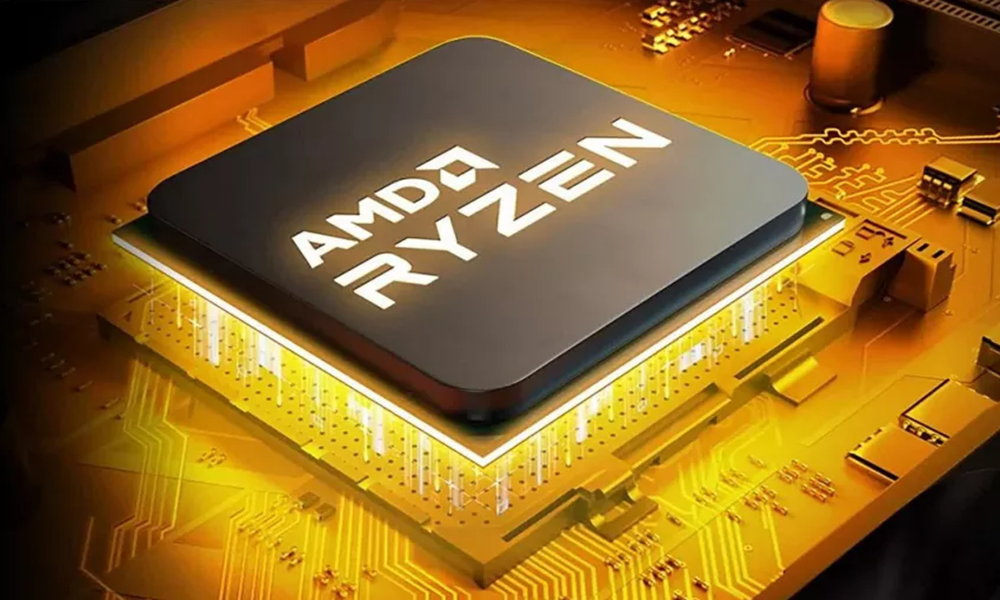1. Evolution of AMD Ryzen Processors
1.1. Introduction and Early Generations
AMD launched the Ryzen brand in March 2017, marking a significant leap in CPU technology with the release of the Ryzen 1000 series. Built on the Zen microarchitecture, these processors introduced features such as multi-core performance and simultaneous multithreading (SMT) to compete effectively against Intel’s offerings. The first-generation Ryzen CPUs were well-received for their performance and value, setting the stage for subsequent improvements.
1.2. The Rise of Ryzen 2000, 3000, and 5000 Series
- Ryzen 2000 Series: Released in 2018, this generation was based on the Zen+ architecture and brought modest improvements in performance and efficiency.
- Ryzen 3000 Series: Introduced in 2019, these processors were built on the Zen 2 architecture and offered significant gains in performance and energy efficiency, including the introduction of 7nm process technology.
- Ryzen 5000 Series: Launched in late 2020, these processors feature the Zen 3 architecture, delivering impressive performance gains and enhanced single-threaded performance, making them highly competitive with Intel’s offerings.
2. Key Features of AMD Ryzen Processors
2.1. Multi-Core Architecture
AMD Ryzen processors are known for their high core and thread counts, which allow them to excel in multi-threaded tasks. For example, Ryzen 9 processors feature up to 16 cores and 32 threads, enabling efficient handling of demanding applications such as video editing and 3D rendering.
2.2. Simultaneous Multithreading (SMT)
SMT technology allows each core to handle two threads simultaneously, effectively doubling the number of threads a processor can manage. This feature enhances performance in multi-threaded applications and improves overall system responsiveness.
2.3. Precision Boost Technology
Precision Boost Technology dynamically adjusts the processor's clock speed to optimize performance based on the workload and thermal conditions. This technology allows Ryzen processors to deliver higher speeds for demanding tasks while maintaining power efficiency.
2.4. AMD StoreMI Technology
AMD StoreMI combines the speed of an SSD with the capacity of an HDD, creating a virtual drive that provides faster access to frequently used files and applications. This technology improves system responsiveness and overall performance.
2.5. Overclocking Capabilities
Many AMD Ryzen processors offer overclocking support, allowing users to push their CPUs beyond the factory settings for enhanced performance. AMD’s Ryzen Master software provides an intuitive interface for managing overclocking settings and monitoring system performance.
3. AMD Ryzen Processor Lineup
3.1. Ryzen 3
Ryzen 3 processors are designed for budget-conscious users who need reliable performance for everyday computing tasks. They typically feature 4 cores and 4 threads, making them suitable for web browsing, office applications, and light gaming.
Key Features:
- Cores/Threads: 4 cores, 4 threads
- Performance: Good for basic computing and light multitasking
- Models: Ryzen 3 1200, Ryzen 3 3200G
3.2. Ryzen 5
Ryzen 5 processors offer a balanced performance for mid-range users who require more power for gaming, content creation, and productivity. They generally feature 6 cores and 12 threads, providing a good mix of performance and efficiency.
Key Features:
- Cores/Threads: 6 cores, 12 threads
- Performance: Suitable for moderate gaming, multitasking, and productivity
- Models: Ryzen 5 3600, Ryzen 5 5600X
3.3. Ryzen 7
Ryzen 7 processors cater to high-performance users who need robust computing power for demanding applications. They typically feature 8 cores and 16 threads, making them ideal for gaming, video editing, and content creation.
Key Features:
- Cores/Threads: 8 cores, 16 threads
- Performance: Excellent for high-end gaming, content creation, and professional applications
- Models: Ryzen 7 3700X, Ryzen 7 5800X
3.4. Ryzen 9
Ryzen 9 processors represent the pinnacle of AMD’s consumer desktop performance. They are designed for enthusiasts and professionals who require top-tier performance for intensive tasks such as 4K gaming, VR, and complex simulations.
Key Features:
- Cores/Threads: 12-16 cores, 24-32 threads
- Performance: Exceptional for extreme gaming, video production, and scientific computing
- Models: Ryzen 9 3900X, Ryzen 9 5950X
4. Comparing AMD Ryzen Processors
4.1. Performance vs. Price
AMD Ryzen processors are known for their excellent price-to-performance ratio. The Ryzen 3 offers great value for basic computing needs, while the Ryzen 5 provides a balanced performance for more demanding tasks. The Ryzen 7 and Ryzen 9 deliver high-end performance for power users and enthusiasts.
4.2. Use Case Scenarios
- Ryzen 3: Ideal for users who need a cost-effective processor for everyday tasks and light gaming.
- Ryzen 5: Best for users who want a good balance between performance and cost for gaming, multitasking, and productivity.
- Ryzen 7: Suitable for users who engage in demanding applications like video editing, 3D rendering, and high-end gaming.
- Ryzen 9: Designed for users who need the highest level of performance for professional-grade applications and extreme gaming.
5. Future Trends and Innovations
AMD continues to innovate with new generations of Ryzen processors, focusing on improving performance, energy efficiency, and integration with emerging technologies. Upcoming advancements include:
- AMD Ryzen 6000 Series: Expected to introduce further improvements in performance and efficiency with enhanced Zen 4 architecture and support for DDR5 memory.
- 3D V-Cache Technology: AMD’s new technology that increases cache capacity, enhancing performance in gaming and other data-intensive applications.
6. Conclusion
AMD Ryzen processors have established themselves as a powerful and competitive choice in the computing market. With a wide range of options catering to different performance needs and budgets, Ryzen processors offer impressive performance, efficiency, and value. Whether you’re a casual user, a gamer, or a professional, AMD Ryzen has a processor that can meet your requirements.
As AMD continues to push the boundaries of CPU technology, users can expect even greater advancements in performance and features. The Ryzen brand remains at the forefront of personal computing, delivering high-quality processors that cater to a diverse range of computing needs.

